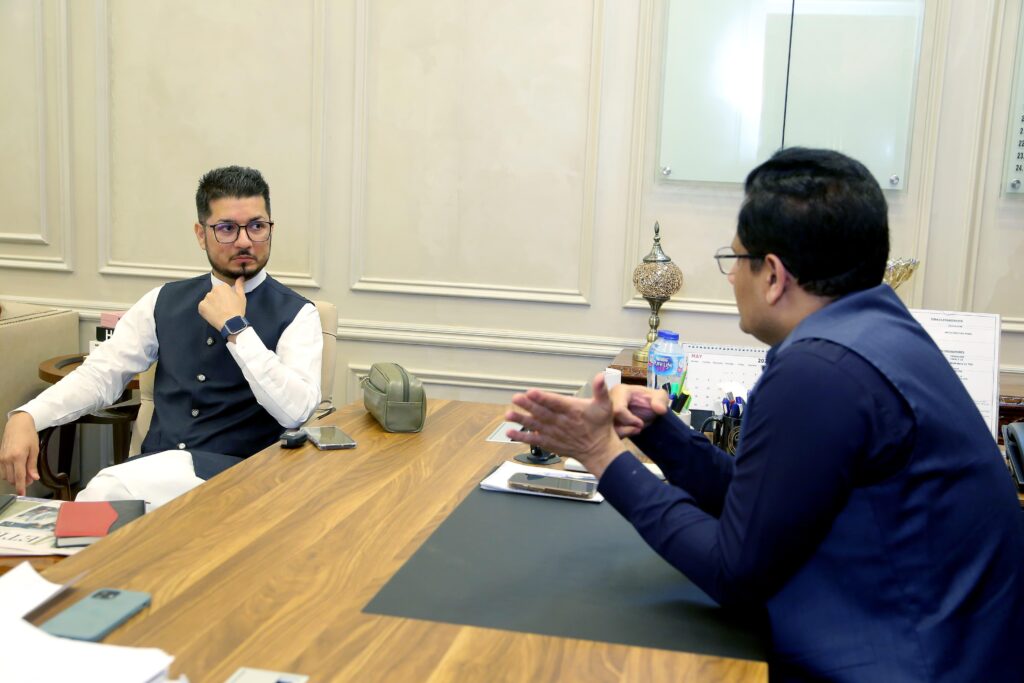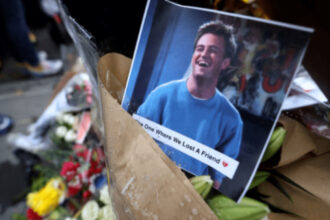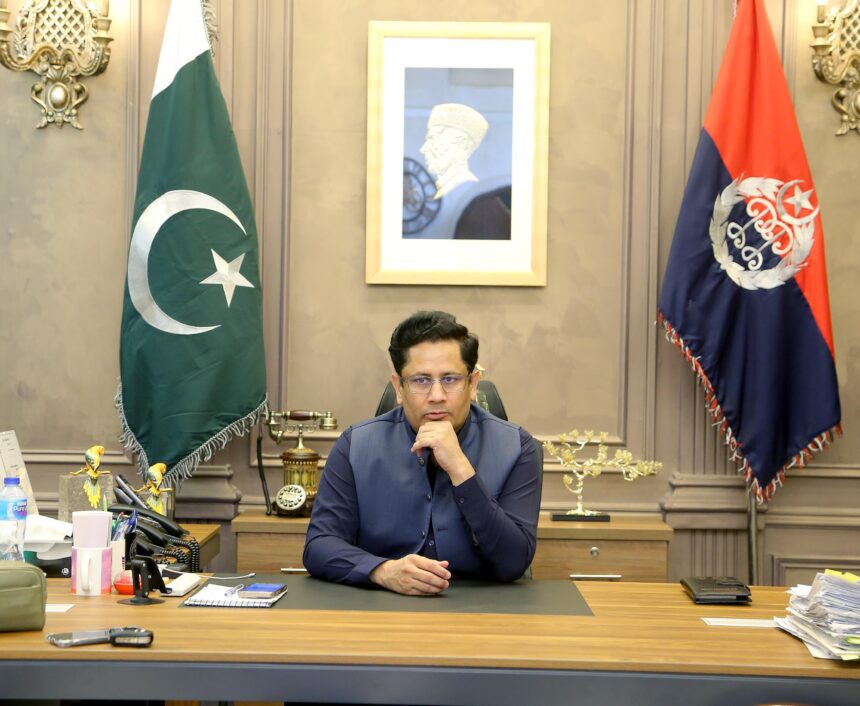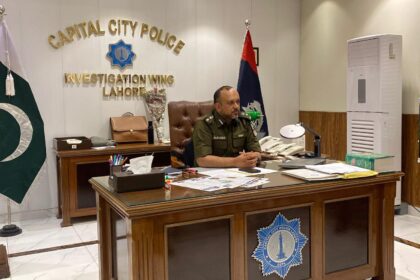In a career spanning insurgency zones, high-profile investigations, and the complexities of Punjab’s criminal landscape, DIG Imran Kishwar has learned to lead with perseverance. In this candid conversation, he recounts formative experiences, unspeakable crimes, and his belief in justice—not just as a system, but as a legacy.
Q: Could you begin by telling us a little about your early life—where you grew up, and what led you to the police service?
I’m from Okara. After finishing my education, I did a Master’s in International Relations, worked briefly on a UN gender equality project, then appeared in the CSS exam in 2004. Police was my first choice—and that’s how it began.
Q: Was there someone who had a fundamental impact on your personality growing up?
My father. He passed away when I was just 13, but I still remember his voice, his stories, his presence. He didn’t spend much time at home because of work, but the time he gave was impactful. He’d talk about politics, society, human nature. He showed us how to navigate a world full of contradictions.

Q: What was your first assignment in the police like?
Swat. This was during the peak of the insurgency. I arrived to find the mirrors and windows of my rest house shattered from mortar shelling. I asked the orderly to fix them—he told me not to bother, because the shelling would start again that night. That was my welcome.
That same night, I heard a blast around 1 a.m. I was reading, the book slipped from my hands. The orderly told me the artillery had started and would go on till dawn. That was my first real exposure to what policing in conflict looked like.
Q: Was there a particular case early on that stayed with you?
Yes—one in Nowshera. A woman and her seven-year-old son were slaughtered in their home. Rough work, with kitchen knives. We assumed it was an honour killing, but that line failed. Then we suspected a Qari, someone close to the family. That didn’t hold either.
Eventually, we searched house-to-house. Found an old locked house. Inside, we discovered a clay courtyard stained with blood and blood-soaked clothes. Two women lived there—a mother and her teenage daughter. Long story short, the daughter confessed: she and her lover, Ilyas, committed the murders. The woman had refused to run away with him. So they killed her—and then, when her son walked in, they killed him too.
I conducted 35 raids in one night to arrest Ilyas. I told myself I wouldn’t sleep until I caught him. That case was tormenting. It was early in my career, and it hit hard.
Q: How does someone process cases like that—how do officers cope?
Honestly? We don’t. There’s no mental health support. Once in Faisalabad, I caught a constable dozing on duty. He’d been working non-stop for 36 hours. Our working conditions are brutal. We’re understaffed, always on call. A proposal once floated to appoint psychologists to every district. It got shelved—deemed irrelevant to police work.
But the trauma we face is real. It’s not abstract. It lives in our bodies.
Q: Having served in both KP and Punjab, how would you compare the two?
In KP, people are more straightforward. If there’s a murder, the FIR just says what happened. In Punjab, they name 10 people—even those abroad. It makes cases harder and justice slower.
There was a man from Belgium who returned to his village after 35 years. He was falsely named in an honour killing. Just because he bought land. They said he’d passed by the victims days earlier and scolded them. That’s all it took. He told me, “Sir, just bring them in front of me. If they can even recognise me, send me to jail.” He was innocent. But that’s what false FIRs do.
Q: Let’s talk about corruption. How much does underpayment contribute to it?
I’d say about 40%. Many officers want to stay honest, but the system pushes them. Some will be corrupt no matter what you pay them. But supervisors have power. When I was SP in Faisalabad, I listened to 35–50 cases daily myself. Petty disputes, murder, theft. I used to run it like a small court—listen to both sides, visit crime scenes, give decisions.
If a supervisory officer wants to deliver justice, it can be done.
Q: You also led the JIT in the 9th May case. What was that like?
It was national-level. Our job was to stay within the law. People don’t know this, but we released almost 60% of those initially arrested. We looked at geofencing, Safe City footage, private cameras. If someone had a home or shop nearby, or a valid reason, we let them go. Even Nadra’s matches turned out wrong in some cases. We corrected them.
There was no political pressure. We were told to collect evidence, not manufacture it.
Q: Is there sufficient internal accountability in the police force?
A lot has been done—model police stations, online complaint portals, internal accountability branches. But there’s still room for course correction. Always.
Q: What about the access to things like CDRs—can they still be misused?
It has decreased. Each IO has a digital login, and it leaves a footprint. If someone unlawfully obtains CDRs, it can be traced. There’s also a cyber complaint unit at the DIG Investigation Office for this.

Q: You’ve investigated organized crime in several districts—how does it vary?
Sheikhupura has the highest murder rate per capita. Kasur deals more with public disorder. In South Punjab, places like Muzaffargarh have people so oppressed, they don’t even come to police until things get unbearable. Why? Because they have jirgas, elders, feudal systems that come before the police.
Q: What would you say is the biggest problem with conviction rates in Pakistan?
Witnesses don’t follow through. They withdraw. There’s no witness protection. Once they get their stolen property back, they lose interest. Some can’t afford lawyers. Courts delay endlessly. And yes—our investigations need improvement too. But unless the state can deliver punishment, crime will keep coming back. It’s a cycle.
Q: What was the most satisfying case you cracked?
There was a robbery in Johar Town—eight to ten crores. Twelve leads failed. Then a constable mentioned that the robbers’ car had “Masha Allah” written on it. I told him half the cars in Lahore say that—but fine, try it.
Three days later, a white Cultus with that sticker was intercepted. Inside were the robbers, AK-47s, stolen items. Sometimes, the most ridiculous clue turns out right—if you don’t dismiss it.
Q: What kind of legacy would you like to leave behind?
One word: justice. Justice must not go unregistered. The decisions we make—right or wrong—stay with people for life. So we must act quickly, but act right.





